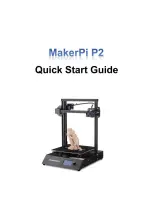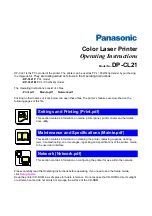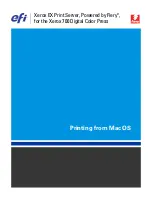
To identify artifacts and verify spatial resolution you must perform the
following test weekly or as needed for troubleshooting image quality
problems.
1.
First, print out the QC general radiography test image.
2.
Check the QC general radiography test image visually for artifacts: no
significant disturbing artifacts should be visible.
3.
Check the spatial resolution.
The test film also shows three squares which each contains an oval. These
3 ovals contain 3 groups, each having 5 dots. All five dots of each group
must be visible with a magnifying glass. The smallest cluster of 5 dots is
only visible if the viewing conditions are good.
4.
Check the Low Contrast Visibility at both the high (100 / 95%) and low
end (0 / 5%) of the density scale. You should be able to see the circle in
the square (refer to item 1 on the
‘QC general radiography test image’
) and
the upper circle (refer to item 2 on the
‘QC general radiography test image’
).
5.
Record these values on Chart 3 (‘Artifacts and Spatial Resolution Control
Chart’).
WARNING:
In case of significant artifacts, insufficient spatial resolution
or failure of any other recommended QC tests, the cause of
the problem must be identified, and corrective action must
be taken before the printer can be used for any further
clinical imaging. If the problem can not be solved, call your
local service organization for assistance.
Related Links
Performing the daily QC test for general radiography applications
on page 95
Establishing the image geometry reference values for general radiography
on page 92
Charts for general radiography QC
on page 130
Preventive maintenance schedule
on page 111
Performing the Annual QC tests for general radiography applications
Geometric Consistency Test
To be able to notice fluctuations in image size and aspect ratio, you must
perform this procedure once a year.
1.
First, perform the daily test.
2.
Measure the distances A and B of the geometric square on the QC general
radiography test image.
Drystar 5500, Drystar 5503 | Advanced Operation (key-operator mode) |
97
2901J EN 20191018 0826
















































